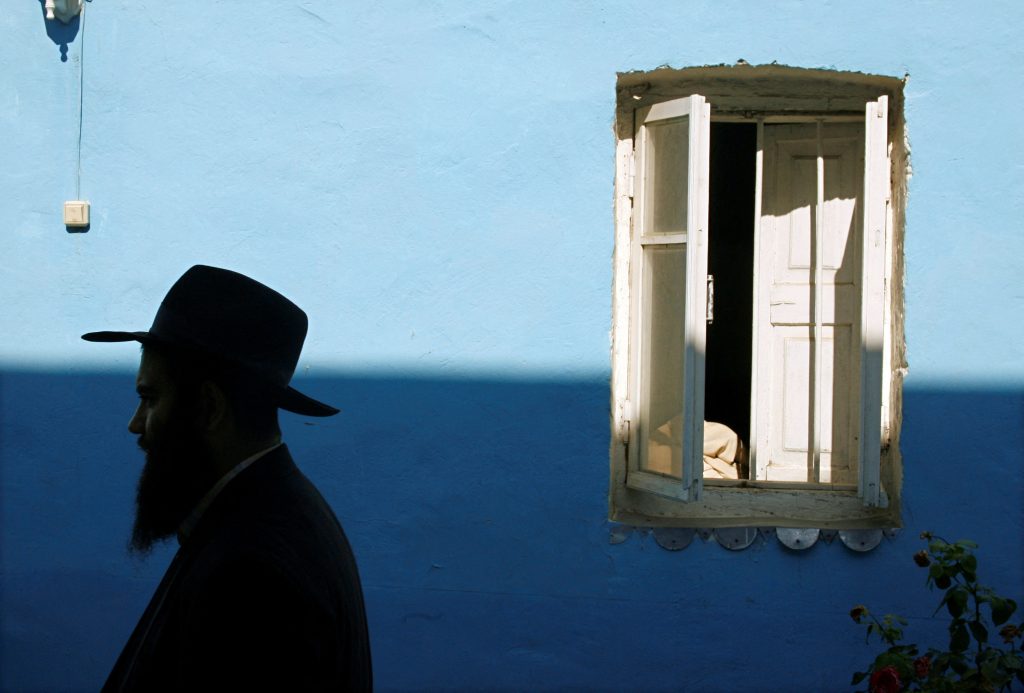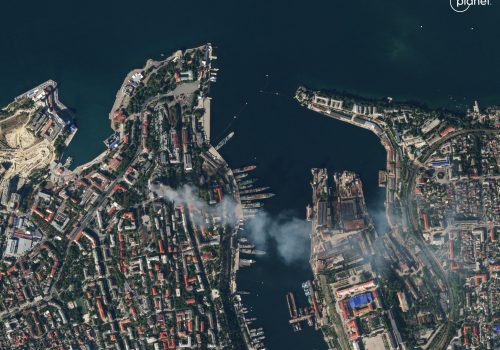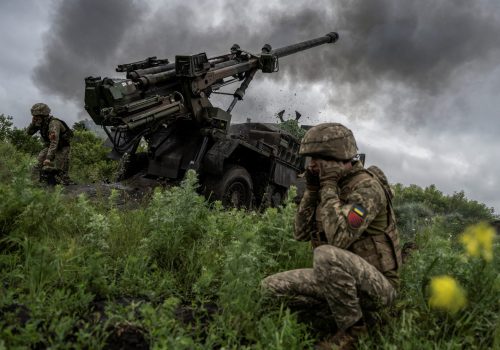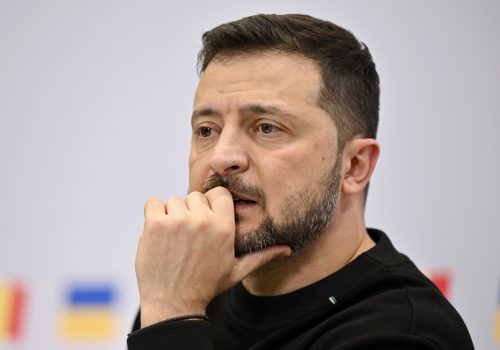An antisemitic mob stormed Makhachkala Airport in southern Russia’s Republic of Dagestan on October 29 intending to hunt down Jewish passengers on an incoming flight from Tel Aviv. This attempted pogrom was eventually thwarted by local law enforcement officials, but the scenes of murderous intent sent shock waves around the world while raising serious questions about the rising tide of antisemitism in Putin’s Russia.
Events in Dagestan unfolded against a backdrop of heightened international tension over the recent escalation of hostilities in Israel. Russia has adopted what many see as a pro-Palestinian position toward the crisis, further straining what was already a tense relationship with Israel. In recent years, Russia has rebuffed calls to recognize Hamas as a terrorist organization and has deepened its alliance with anti-Israel Syrian dictator Bashar al-Assad.
On the eve of the recent unrest in Dagestan, Russia welcomed a Hamas delegation to Moscow in what was the group’s first high-profile foreign visit since the October 7 Hamas attack on Israel. Hamas officials reportedly vowed to give priority treatment to Russian citizens among the hostages seized in southern Israel, noting that Russia was “a closest friend.”
Stay updated
As the world watches the Russian invasion of Ukraine unfold, UkraineAlert delivers the best Atlantic Council expert insight and analysis on Ukraine twice a week directly to your inbox.
Dagestan and the surrounding North Caucasus region have a long record of ethnic nationalism and religious extremism, especially following the import of Wahhabism in the decades since the collapse of the Soviet Union. Conflicts between nationalist and religious extremist groups have plagued the region for years. This extremist influence was on full display during the storming of Makhachkala Airport.
The attempted pogrom also echoed the worst excesses of Russian nationalism, which has a history of antisemitism stretching back hundreds of years. The term “pogrom” itself can be traced to imperial Russia, which witnessed frequent outbreaks of deadly violence targeting Jewish communities. Meanwhile, the most notorious antisemitic forgery in history, The Protocols of the Elders of Zion, originated in Russia at the turn of the twentieth century.
This legacy of antisemitic baggage is particularly important at a time when Russian President Vladimir Putin is actively promoting an aggressive brand of imperial nostalgia. Officially, modern Russia is a pluralistic state that celebrates its ethnic and religious diversity. Indeed, Putin has accused neighboring Ukraine of antisemitism and has framed the current invasion as a quest to “de-Nazify” the country. Unfortunately for the Kremlin, there is little evidence to support such assertions.
The groundless claim that Russia invaded Ukraine to combat Nazism is a transparent attempt to justify an old-fashioned war of imperial aggression. When confronted with the uncomfortable fact that Ukrainian President Volodymyr Zelenskyy is himself Jewish, top Kremlin officials have retreated into the quagmire of antisemitic conspiracy theories. In May 2022, Russian Foreign Minister Sergei Lavrov attempted to dismiss Zelenskyy’s Jewish identity by declaring that “Hitler also had Jewish blood.” More recently, Putin alleged that Zelenskyy had been deliberately chosen by the West as a Jewish puppet to cover up the “anti-human essence” of the Ukrainian state.
Eurasia Center events

There is antisemitism in Ukraine, of course, just as there is in all states. The real issue is whether extremist actors have inordinate political power, enjoy the support (or at least inaction) of the government, or the ability to coordinate large-scale violence. In Putin’s Russia, that may well be the case. Many see the recent attempted pogrom at Makhachkala Airport as a direct consequence of the antisemitic invective that has become increasingly normalized in the Russian public discourse following the February 2022 invasion of Ukraine.
In the nationalistic environment of wartime Russia, the country’s Jewish community has faced accusations from some quarters of being insufficiently supportive of the invasion. Senior Rabbi Berel Lazar has felt obliged to speak out against “vulgar antisemitism” that poses a “huge danger” to Russian Jews. In one particularly chilling incident, prominent Russian journalist Alexei Venediktov found a pig’s head with the word “Judensau” (German for “Jewish pig”) placed outside his apartment.
Russian Jews with close ties to the Kremlin have also become targets of antisemitic attacks. Russia’s most high-profile propagandist, Vladimir Solovyov, recently faced criticism that his media network employs too many Jewish staffers. When Solovyov’s colleague and fellow pundit Yevgeny Satanovsky, who is also Jewish, used strong language to accuse senior Russian Foreign Ministry officials of antisemitism and criticize the government’s policy on Israel, he was promptly dismissed.
These developments are fueling alarm among Russia’s remaining Jews and reawakening painful historical memories, while also sparking debate over the future security of the community. Rabbi Pinchas Goldschmidt was Chief Rabbi of Moscow for almost thirty years, but was forced to flee the country in March 2022 after refusing a request from state officials to publicly support Russia’s invasion of Ukraine. He has since called on Russian Jews to leave the country.
“When we look back over Russian history, whenever the political system was in danger you saw the government trying to redirect the anger and discontent of the masses toward the Jewish community,” Rabbi Goldschmidt told The Guardian in December 2022. “We’re seeing rising antisemitism while Russia is going back to a new kind of Soviet Union, and step by step the iron curtain is coming down again. This is why I believe the best option for Russian Jews is to leave.”
Joshua Stein holds a PhD from the University of Calgary and is a researcher on antisemitism and ethics.
Further reading
The views expressed in UkraineAlert are solely those of the authors and do not necessarily reflect the views of the Atlantic Council, its staff, or its supporters.

The Eurasia Center’s mission is to enhance transatlantic cooperation in promoting stability, democratic values and prosperity in Eurasia, from Eastern Europe and Turkey in the West to the Caucasus, Russia and Central Asia in the East.
Follow us on social media
and support our work
Image: A rabbi walks in the courtyard of a synagogue in the ancient city of Debent on the Caspian Sea coast in Russia's Caucasus region of Dagestan. August 17, 2007. )REUTERS/Thomas Peter)




